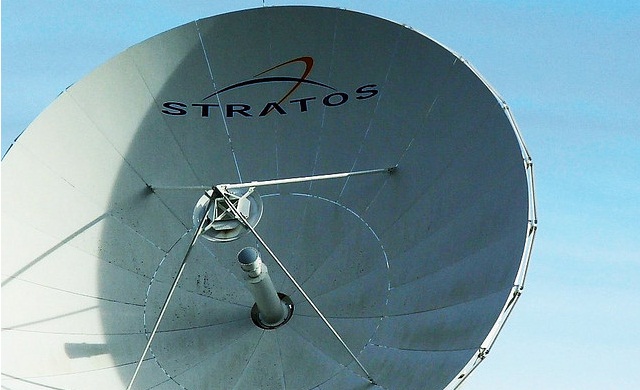Sweepstakes are promotional contests where participants can win prizes without making a purchase. These contests are popular in the casino industry as they attract customers and increase engagement. Sweepstakes offer casinos a way to draw in new players and retain existing ones by providing exciting opportunities to win rewards. They often involve simple entry mechanisms like filling out a form or playing a game, making participation easy and appealing. By offering attractive prizes, casinos can boost their foot traffic and overall patronage, which can lead to increased revenue from gaming and other services.

General Description of the New York Sweepstakes Law
The law governs the operation of sweepstakes in New York, requiring businesses to follow strict guidelines to avoid deceptive practices. It focuses on transparency, consumer protection, and fair play. The law applies to any promotion where prizes are awarded by chance and no purchase is necessary to enter. For detailed insights on sweepstakes and their legal implications, visit sweepstakes-casino.org.
Key Requirements
- Registration: Any sweepstakes offering prizes valued over $5,000 must register with the New York Department of State. This includes submitting detailed forms 30 days before the contest begins.
- Bonding: Operators may need to post a bond to ensure the prizes are awarded as promised, safeguarding participants’ interests.
- Reporting: A Certification of Winners must be filed within 90 days after the sweepstakes ends. This report must list the names, addresses, and prize details of the winners.
- Certification: The law requires maintaining records of all winners for at least six months, ensuring accountability and transparency.
Impact on Casino Operations: Increased Scrutiny and Regulation
The introduction of New York’s sweepstakes law has led to heightened scrutiny and regulation for casino operations. This has brought about significant changes in how casinos manage their promotional activities.
Need for Strict Compliance with Regulations
Casinos must strictly adhere to the new regulations to avoid legal penalties. Compliance involves detailed documentation and adherence to the rules set by the New York Department of State. This includes submitting necessary forms and ensuring all aspects of the sweepstakes are conducted fairly and transparently.
Licensing and Operational Requirements
- Licensing: Casinos need to obtain appropriate licenses to run sweepstakes legally. This process involves thorough background checks and adherence to regulatory standards.
- Operational Adjustments: Casinos must update their operational procedures to meet the new legal standards. This includes adjusting marketing strategies, promotional activities, and ensuring all contests comply with the law.
Enhanced Security and Record-Keeping Practices
- Security Measures: Enhanced security protocols are necessary to protect participants’ personal and financial information. This includes robust cybersecurity measures and secure data storage solutions.
- Record-Keeping: Accurate and detailed record-keeping is essential. Casinos must maintain records of all sweepstakes entries, winners, and prize distributions for a minimum of six months. This ensures transparency and accountability.
These changes require casinos to invest in better security infrastructure and administrative processes. While these regulations increase operational costs, they also enhance consumer trust and protect the integrity of promotional activities. By adhering to these stringent requirements, casinos can ensure a safer and more reliable gaming environment for their customers.
Enhanced Consumer Protection
The New York Sweepstakes Law introduces several measures aimed at ensuring fair and transparent operations in sweepstakes, significantly benefiting consumers.
Measures to Ensure Fair and Transparent Operations
To enhance consumer protection, the law mandates that sweepstakes must operate transparently. This involves:
- Fair Play: Ensuring that all participants have an equal chance of winning without any hidden conditions or biases.
- Transparency: Clearly outlining all rules and procedures involved in the sweepstakes, making sure there are no ambiguities that could mislead participants.
Requirements for Clear Terms and Conditions
Casinos must provide clear and comprehensive terms and conditions for their sweepstakes. These requirements include:
- Detailed Rules: Clearly stating the rules of participation, eligibility criteria, and how winners will be selected.
- Prize Information: Providing detailed descriptions of the prizes, including their value and the number of prizes available.
- Entry Methods: Explaining the methods of entry, ensuring there is a free method available to all participants.
Displaying Odds of Winning and Maintaining Responsible Gambling Practices
- Odds of Winning: Casinos are required to prominently display the odds of winning. This helps participants make informed decisions and understand their chances of winning.
- Responsible Gambling: The law promotes responsible gambling practices by requiring casinos to implement measures that prevent problem gambling. This includes setting limits on participation, providing resources for gambling addiction, and promoting self-exclusion programs.
These enhanced consumer protection measures ensure that participants are well-informed and treated fairly, fostering trust and safety in sweepstakes operations. By adhering to these regulations, casinos can provide a secure and transparent environment for their customers.
Financial Implications
The implementation of New York’s sweepstakes law has significant financial implications for casino operations. Compliance with these regulations involves several costs and impacts profitability.
Costs Associated with Compliance
- Licensing Fees: Casinos must obtain the appropriate licenses to run sweepstakes, which involves paying licensing fees. These costs can be substantial, especially for large-scale operations. According to ny.gov, all entities conducting sweepstakes must comply with the state’s licensing requirements, ensuring the integrity and legality of the operations.
- Security Measures: Enhanced security protocols are required to protect participant information. This includes investing in advanced cybersecurity systems and secure data management practices, adding to the overall expenses.
Financial Burden of Funding Responsible Gambling Initiatives
- Responsible Gambling Programs: The law mandates casinos to fund responsible gambling initiatives. This includes creating and maintaining programs to help prevent gambling addiction, which can be costly. These programs often require continuous funding for resources, training, and support services.
- Public Awareness Campaigns: Casinos must also invest in public awareness campaigns to educate customers about responsible gambling. These campaigns aim to promote safe gambling habits and provide information on available support for those who may need it.
Impact on Operating Expenses and Profitability
- Increased Operating Costs: The cumulative effect of compliance costs, security investments, and funding responsible gambling programs significantly increases the operating expenses for casinos. This can reduce overall profitability, especially for smaller operators who may struggle to absorb these additional costs.
- Business Model Adjustments: To manage these increased expenses, casinos may need to adjust their business models. This could involve restructuring promotional activities, optimizing operational efficiencies, or finding new revenue streams to offset the additional costs.
The financial implications of complying with New York’s sweepstakes law are substantial, impacting both short-term operating expenses and long-term profitability. However, these regulations also enhance consumer trust and safety, which can contribute to a more sustainable business environment in the long run.
Restrictions on Advertising and Marketing
New York’s sweepstakes law imposes strict regulations on advertising and marketing practices to ensure transparency and prevent deceptive activities. These measures significantly impact how casinos promote their sweepstakes.
Limitations on Advertising Practices to Prevent Deception
- Accurate Representation: Casinos must ensure that all advertising materials accurately represent the sweepstakes. Misleading claims, exaggerated odds of winning, and hidden conditions are strictly prohibited.
- Clear Disclosures: Advertisements must include clear disclosures about the terms and conditions of the sweepstakes. This includes eligibility criteria, the method of entry, and any costs associated with participation.
Shift Towards Transparent and Informative Marketing
- Transparency: There is a significant shift towards more transparent marketing strategies. Casinos are now required to provide detailed information about the sweepstakes in their promotional materials.
- Informative Content: Marketing efforts focus on educating consumers about the sweepstakes process, the odds of winning, and the nature of the prizes. This helps build trust and ensures participants are well-informed.
Specific Guidelines for Promotional Activities
- Promotional Guidelines: The law sets out specific guidelines for how sweepstakes can be promoted. These include rules on the use of email, social media, and traditional advertising channels.
- Compliance Checks: Casinos must regularly review their promotional activities to ensure they comply with the regulations. This includes internal audits and third-party reviews to identify and correct any potential issues.
By adhering to these advertising and marketing restrictions, casinos can create a fairer and more transparent environment for their sweepstakes. These measures not only protect consumers but also enhance the reputation of the casinos by demonstrating a commitment to ethical practices.
Adjustments by Casinos
The new sweepstakes regulations in New York have forced casinos to make several adjustments to their business models and operational strategies. These changes are necessary to comply with the law while maintaining profitability and long-term viability.
Changes in Business Models to Adapt to New Regulations
- Operational Overhaul: Casinos are restructuring their operational models to meet the stringent requirements. This includes updating their internal processes to ensure compliance with registration, reporting, and security mandates.
- Marketing Strategy Shifts: With new advertising restrictions, casinos are shifting their marketing strategies to focus on transparency and honesty. This involves creating clear, informative promotions that comply with legal guidelines.
Conclusion
The New York Sweepstakes Law significantly impacts casino operations, introducing rigorous regulations to ensure transparency and consumer protection. Casinos must adapt by restructuring their business models, enhancing security measures, and complying with detailed reporting requirements. The financial burden of compliance, including licensing fees and funding responsible gambling initiatives, increases operational costs and affects profitability. However, these regulations also build consumer trust and promote responsible gambling, fostering a safer and more reliable environment. By embracing these changes, casinos can achieve long-term sustainability while maintaining compliance and upholding ethical practices.

 Hot Features
Hot Features













